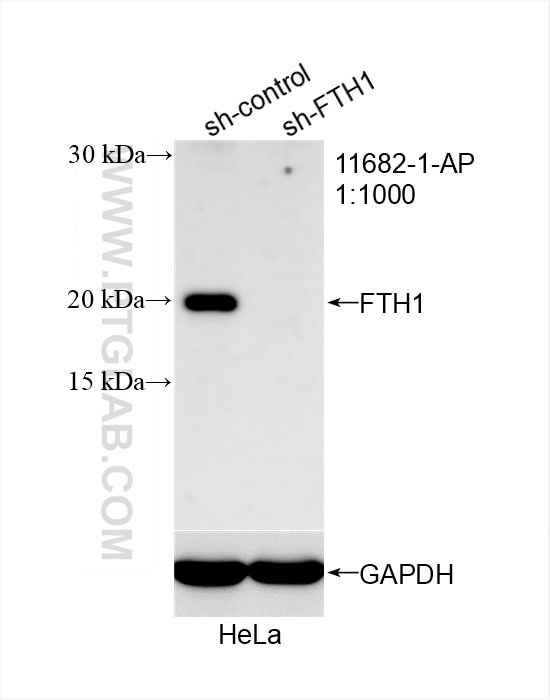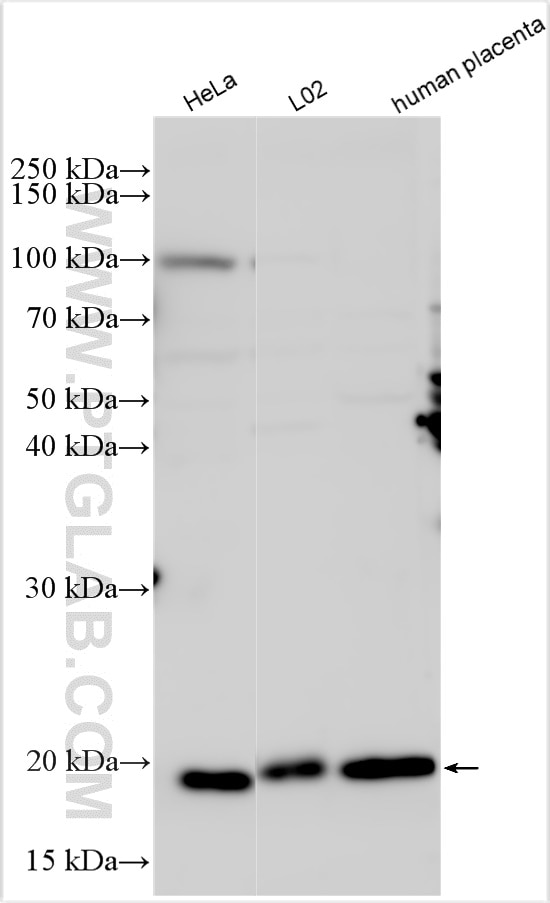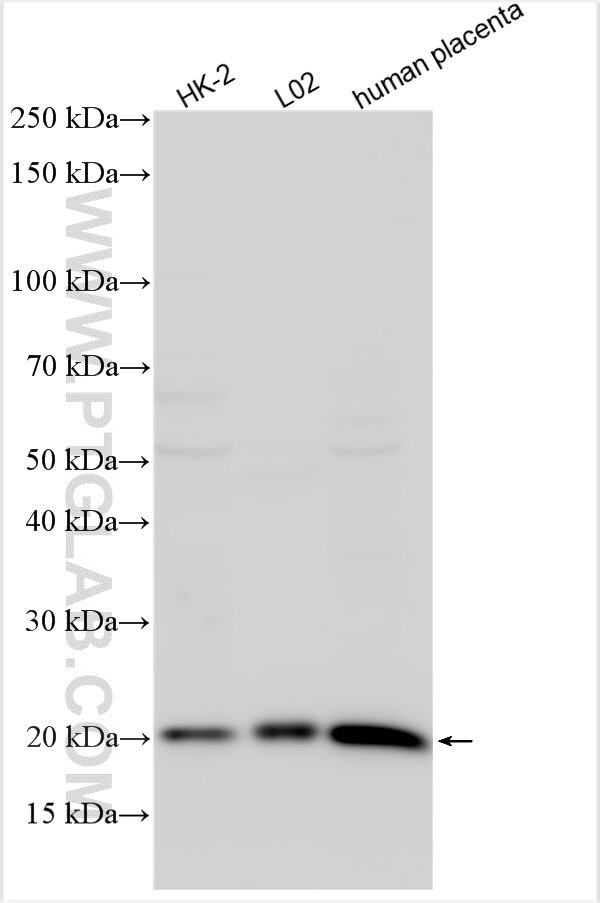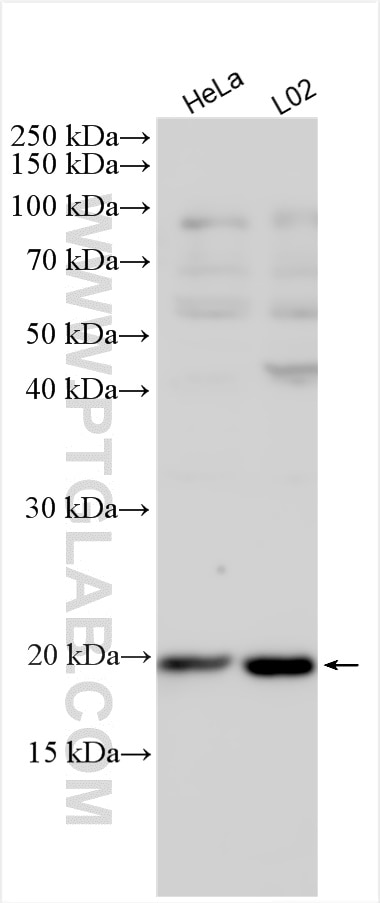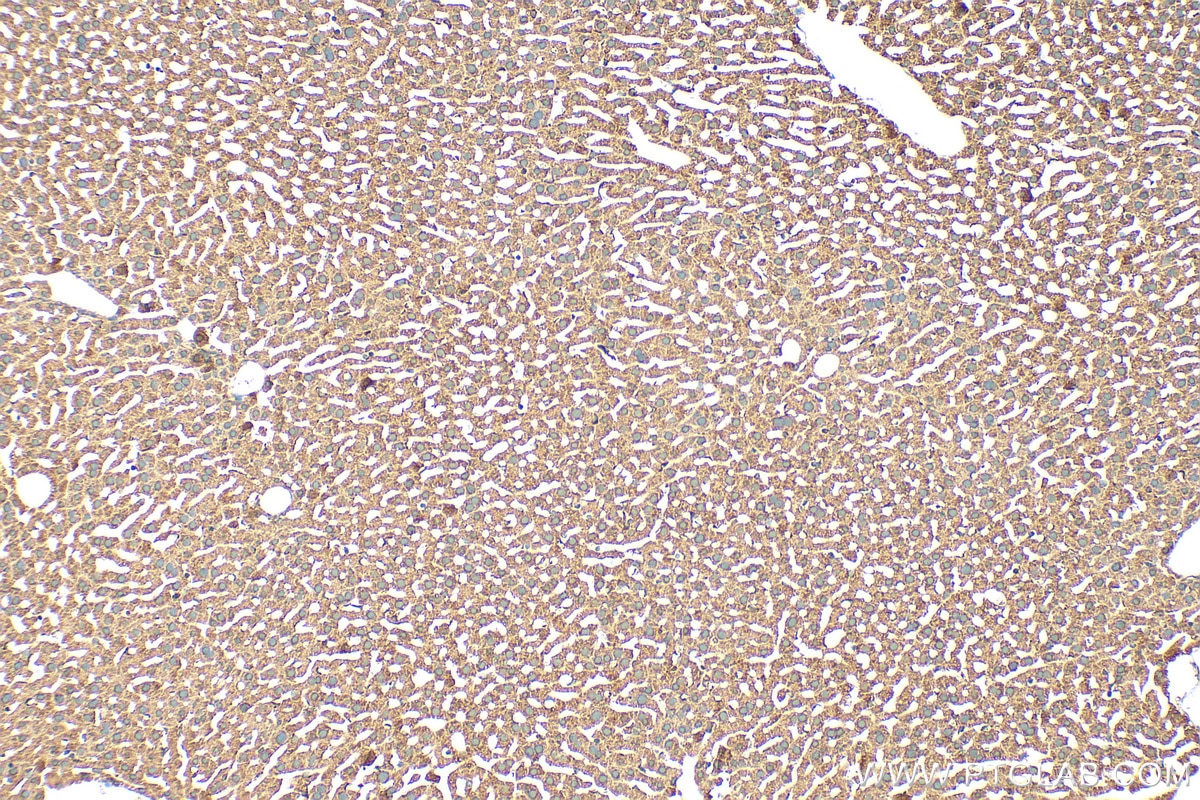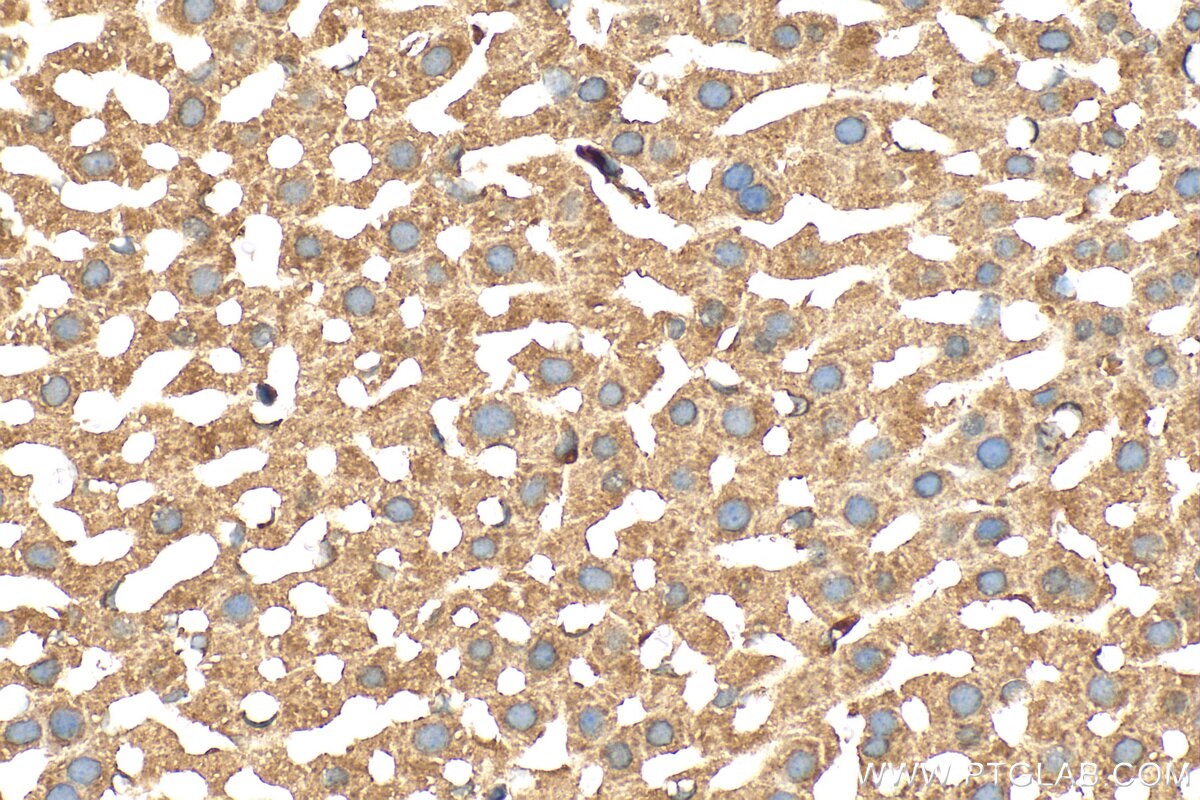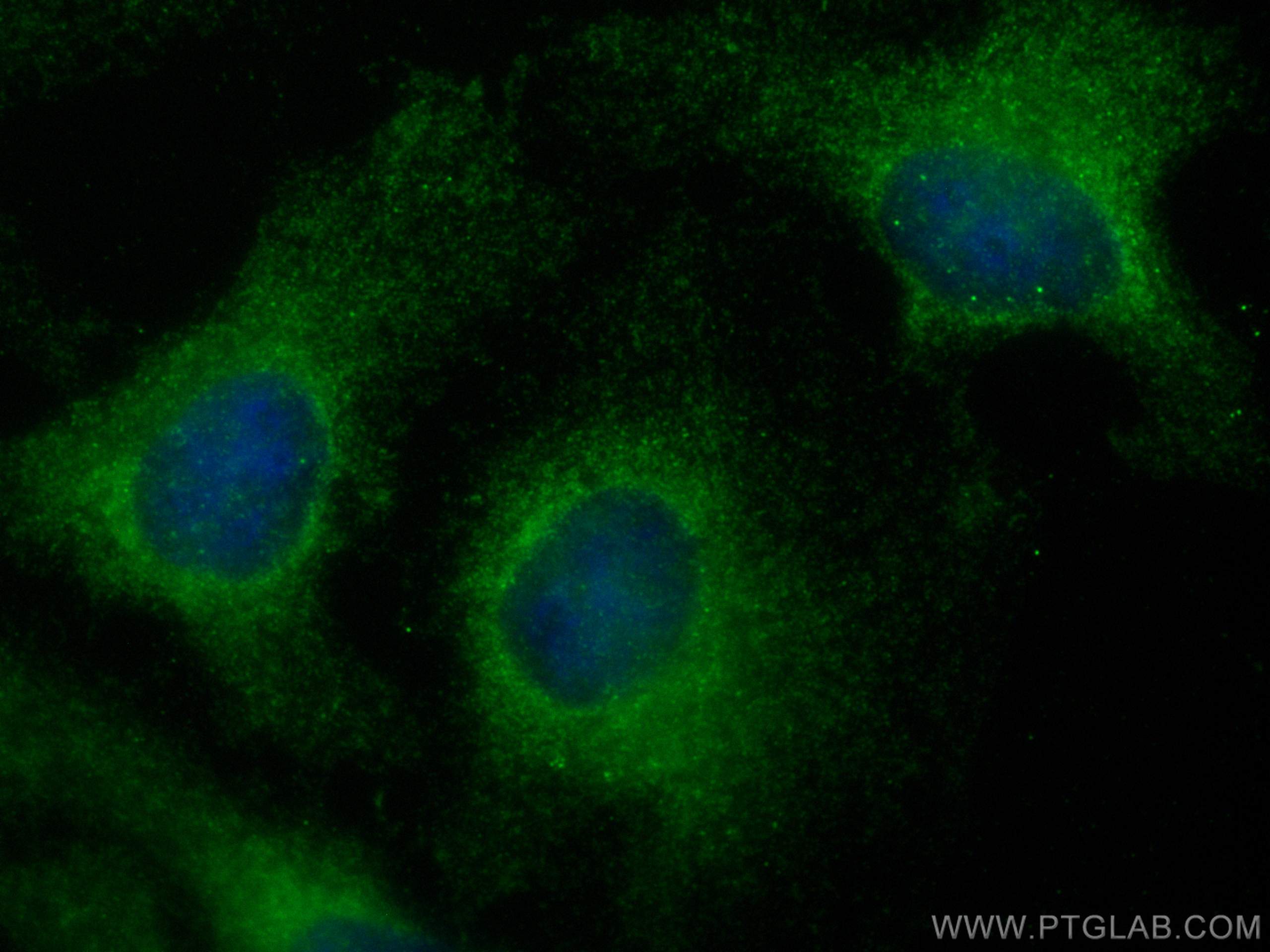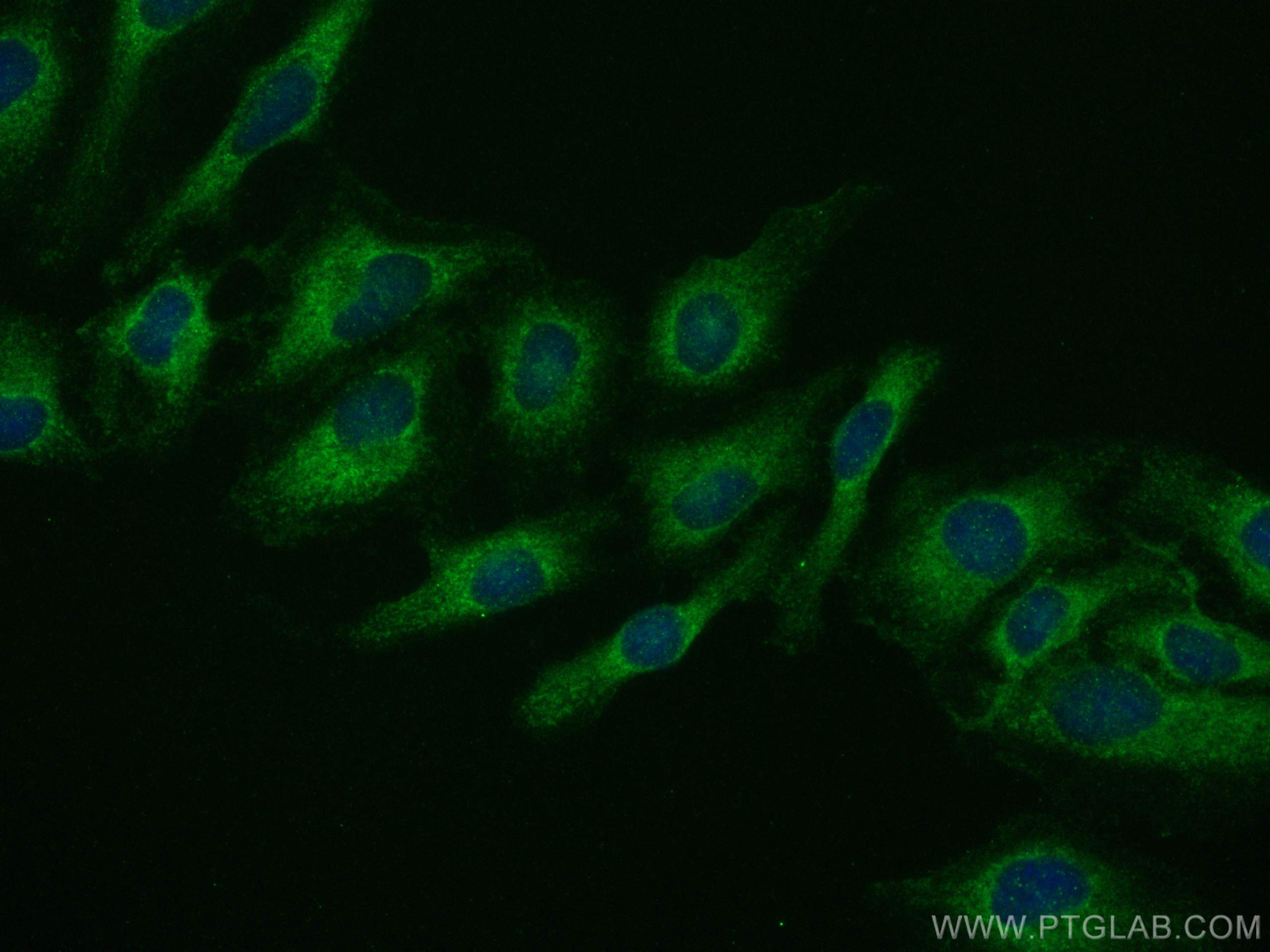Anticorps Polyclonal de lapin anti-Ferritin heavy chain
Ferritin heavy chain Polyclonal Antibody for WB, IHC, IF/ICC, ELISA
Hôte / Isotype
Lapin / IgG
Réactivité testée
Humain, rat, souris
Applications
WB, IHC, IF/ICC, ELISA
Conjugaison
Non conjugué
N° de cat : 11682-1-AP
Synonymes
Galerie de données de validation
Applications testées
| Résultats positifs en WB | HK-2 cells, cellules HeLa, cellules L02, tissu placentaire humain |
| Résultats positifs en IHC | tissu hépatique de souris, il est suggéré de démasquer l'antigène avec un tampon de TE buffer pH 9.0; (*) À défaut, 'le démasquage de l'antigène peut être 'effectué avec un tampon citrate pH 6,0. |
| Résultats positifs en IF/ICC | cellules HeLa, |
Dilution recommandée
| Application | Dilution |
|---|---|
| Western Blot (WB) | WB : 1:1000-1:4000 |
| Immunohistochimie (IHC) | IHC : 1:50-1:500 |
| Immunofluorescence (IF)/ICC | IF/ICC : 1:50-1:500 |
| It is recommended that this reagent should be titrated in each testing system to obtain optimal results. | |
| Sample-dependent, check data in validation data gallery | |
Applications publiées
| WB | See 9 publications below |
| IHC | See 1 publications below |
Informations sur le produit
11682-1-AP cible Ferritin heavy chain dans les applications de WB, IHC, IF/ICC, ELISA et montre une réactivité avec des échantillons Humain, rat, souris
| Réactivité | Humain, rat, souris |
| Réactivité citée | Humain, souris |
| Hôte / Isotype | Lapin / IgG |
| Clonalité | Polyclonal |
| Type | Anticorps |
| Immunogène | Ferritin heavy chain Protéine recombinante Ag2290 |
| Nom complet | ferritin, heavy polypeptide 1 |
| Masse moléculaire calculée | 183 aa, 21 kDa |
| Poids moléculaire observé | 21 kDa |
| Numéro d’acquisition GenBank | BC000857 |
| Symbole du gène | FTH1 |
| Identification du gène (NCBI) | 2495 |
| Conjugaison | Non conjugué |
| Forme | Liquide |
| Méthode de purification | Purification par affinité contre l'antigène |
| Tampon de stockage | PBS avec azoture de sodium à 0,02 % et glycérol à 50 % pH 7,3 |
| Conditions de stockage | Stocker à -20°C. Stable pendant un an après l'expédition. L'aliquotage n'est pas nécessaire pour le stockage à -20oC Les 20ul contiennent 0,1% de BSA. |
Informations générales
Ferritin heavy chain(FTH1, ferritin, heavy polypeptide 1 ), as a 21 kDa subunit of the ferritin complex, exhibits ferroxidase activity, which serves an essential role in catalyzing the conversion of the ferrous ions (Fe2+) to the ferric form (Fe3+). FTH1 regulates angiogenesis during inflammation and malignancy by binding to high molecular weight kininogen (HKa) and blocking its anti-angiogenic activity on endothelial cells in vitro and in vivo(PMID: 33260500). FTH1 has been shown to protect proximal tube epithelial cells and kidneys against the activity of free iron in reactive oxygen species generation. FTH1 plays an important role in the maintenance of the cellular iron balance in ferroptosis.
Protocole
| Product Specific Protocols | |
|---|---|
| WB protocol for Ferritin heavy chain antibody 11682-1-AP | Download protocol |
| IHC protocol for Ferritin heavy chain antibody 11682-1-AP | Download protocol |
| IF protocol for Ferritin heavy chain antibody 11682-1-AP | Download protocol |
| Standard Protocols | |
|---|---|
| Click here to view our Standard Protocols |
Publications
| Species | Application | Title |
|---|---|---|
Inflammopharmacology Sulfasalazine promotes ferroptosis through AKT-ERK1/2 and P53-SLC7A11 in rheumatoid arthritis | ||
Mol Neurobiol A Disintegrin and Metalloproteinase-8 Protects Against Erastin-Induced Neuronal Ferroptosis via Activating Nrf2/HO-1/FTH1 Signaling Pathway | ||
BMC Cancer Oridonin-induced ferroptosis and apoptosis: a dual approach to suppress the growth of osteosarcoma cells | ||
Aging (Albany NY) Eriocitrin inhibits epithelial-mesenchymal transformation (EMT) in lung adenocarcinoma cells via triggering ferroptosis | ||
Hum Exp Toxicol Protective effects of brain and muscle ARNT-like gene 1 on oxidized low-density lipoprotein-induced human brain microvascular endothelial cell injury by alleviating ferroptosis | ||
Exp Cell Res A novel tsRNA-5008a promotes ferroptosis in cardiomyocytes that causes atrial structural remodeling predisposed to atrial fibrillation |
